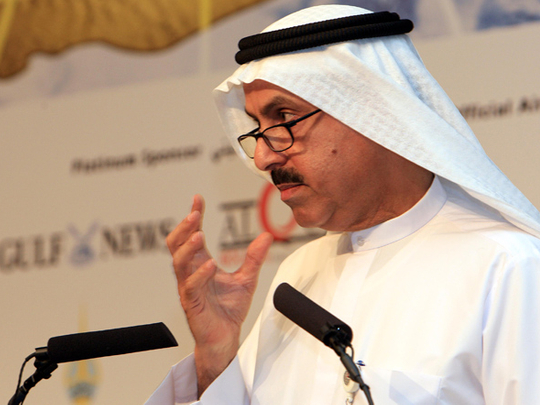
Abu Dhabi: A top UAE official yesterday said growth patterns that create jobs for a majority of unskilled workers have to change if strategies to tackle unemployment and population imbalances in GCC countries are to succeed.
"Our economic pattern creates jobs for the majority of foreign, unskilled workers, while excluding citizens from the labour market," Minister of Labour Saqr Gobash Saeed Gobash told the 15th annual conference of the Emirates Centre for Strategic Studies and Research in Abu Dhabi.
"The construction sector, for instance, contributes 8.6 per cent to gross domestic product (GDP), but employs 47.5 per cent of the foreign manpower."
Gobash said that university graduates employed in the private sector accounted for only 10 per cent of the workforce in the UAE and Saudi Arabia.
Workers with qualifications lower than secondary school certificates make up 51 per cent and 86 per cent of the workforce in these countries, respectively.
"Thus our ever-increasing reliance on foreign manpower has been accompanied with a decline in productivity and adversely affected the sustainability of economic growth and [the] creation of jobs for citizens in the GCC countries."
Gobash argued that labour market conditions for the citizens of GCC countries were expected to tighten even more in the future in light of a rapidly growing population with higher expectations and a youthful age profile.
"For the next five years, nationalisation programmes may provide enough jobs for citizens, but the real challenge will be creating attractive and productive jobs in the private sector for the new entrants to the labour market in the long run," he said.
Gobash said an estimated 250,000 Emiratis are expected to enter the labour market by 2020.
Higher education
New labour market entrants, with higher levels of education and better qualifications, have traditionally been attracted to the public sector because of higher wages and benefits, job security and a social status associated with being employed by government.
At the other extreme, private sector activities have relied heavily on "imported" labour that is readily available on the basis of fixed-term contracts.
Gobash suggested that GCC countries have to adopt growth patterns focusing on capital intensive activities and creating attractive and productive jobs for citizens. He singled out financial brokerage.
New system planned
The Ministry of Labour is studying the replacement of the sponsorship system by the end of the year, the head of the Emirates Human Rights Association revealed yesterday.
"I have spoken to the Minister of Labour and he presented to me an alternative system ... which is very good," said Abdul Gaffar Hussain, president of the EHRA.
He said the ministry was "very keen" on scrapping the system and replacing it with one that was "much more civilised".
Asked when the change is expected to take place, he said: "probably by the year's end".
Hussain was speaking at the headquarters of the EHRA in Al Rashidiya at a press conference about a recently published report by Human Rights Watch on human rights in the UAE.












